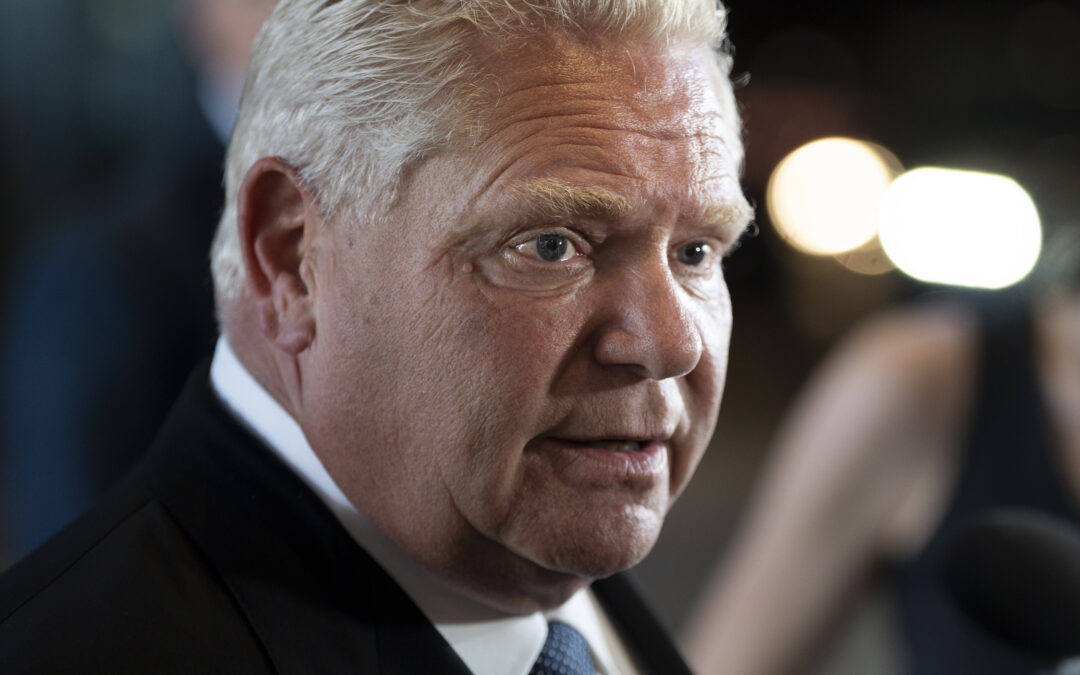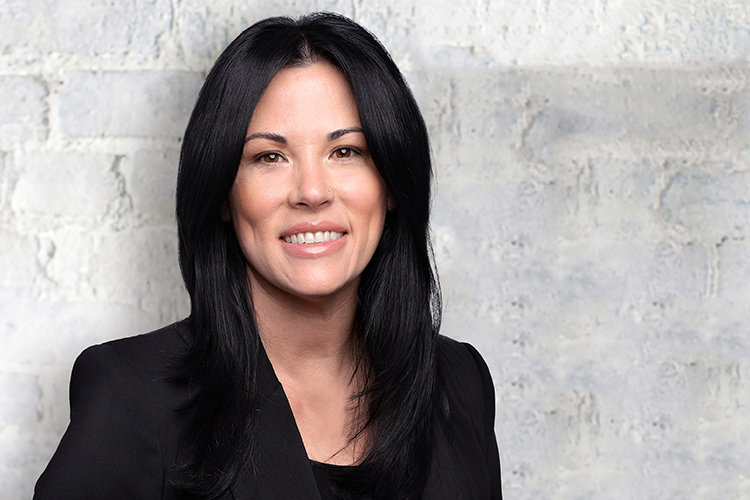This week’s political earthquake in Ottawa has caused everyone to ask, “what’s next?”. Counsel’s federal team is being asked every day to predict the outcome of the Liberal leadership race and the timing of a general election that will likely happen in rapid succession in the next few months.
Here in Ontario, we’re being asked every day by clients to predict Premier Ford’s election timing – and to make these predictions with incomplete and conflicting information.
Prognostication of this kind leaves you open to eating the proverbial crow – but that won’t stop us! So, here’s our prediction of what might be ahead for Ontario in the coming months. Our prediction is based on the facts we lay out below, but it will all come down to a gut decision by Premier Ford, and he may feel otherwise. But the fact remains: an early Ontario election is a serious possibility, and you need to be ready for it.
How we got here:
Doug Ford came to power in 2018 after a very quick leadership election and with little time to prepare for that election. In that campaign, he earned a sizable majority and pushed the governing Ontario Liberal Party to a distant third place with just seven seats. Over the next four years, Ford was forced to lurch from crisis to crisis; some of his own making, others on a global scale, most notably the pandemic crisis. In 2022, he was rewarded for the – admittedly imperfect, but increasingly assured – management of those crises with an even larger majority.
Now, with the election of Donald Trump and his musings about Canada becoming a 51st state, the imposition of punishing tariffs and – to top it all off – a federal government in crisis, Ford is facing perhaps his biggest challenge yet. How does Doug Ford manage this state of affairs? What policy levers can he pull? What economic levers does he have? And, perhaps most intriguing for political watchers like us, what political levers does he pull – particularly whether he will call an early election, ahead of the mandated Spring 2026 election?
It’s this political question that we focus on today. Should Doug Ford take advantage of the existential crisis that Donald Trump poses to Ontario’s industrial base and call an election to consolidate his power and renew his mandate? Or would that be too risky when voters may see this as a cynical power play and punish him for it?
Complicating this calculus is the Federal situation, which came to a head this week with the pending resignation of Prime Minister Trudeau triggering a process that will consume the national attention for the next few months. While the Federal government is consumed, and largely paralyzed, can Ford step into the vacuum and assume leadership on the national stage?
We’ve known for some months now that Ford and his advisors preferred to have their election before the Federal election and presumed election of the Conservative Party, led by Pierre Poilievre. He wanted this to avoid any risk of the frequent “opposite effect” whereby Ontario voters tend to vote for the opposite parties at the Federal and provincial level to maintain a political tension – at least that’s the theory. We also know that there is some policy tension between Poilievre’s team and Ford’s team, with different philosophies of governing, particularly around industrial policy and most notably subsidies for electric vehicles.
So, if a Federal election is likely to be called in early April for a mid-May vote, is there a window before then for Ford to go to the voters of Ontario? And should he?
Our prediction of when the election will be called:
That’s the context. What’s our prediction?
On balance, we continue to think it is very possible that Ford does go to the polls early and the best window for him to do it is coming up very, very soon. In fact, that window suggests a call as soon the end of January, with voters heading the polls at the end of February or very beginning of March.
Why do we make this prediction? A few assumptions:
- A minimum election in Ontario law is 28 days
- Ontario elections are on Thursdays
- Ford would not want to have an election during March Break because many teachers with a week off, pulling vote for his opponents, could tip the balance in a few seats. March Break this year is the week of March 10th with some private schools off the week of March 17th.
- The Federal Parliament returns March 24th, so having an Ontario election on Thursday, March 27th risks putting Ontario into the middle of that story. We don’t think Ford wants to be that closely associated with that mess.
So, with those as assumptions, the two Thursdays available to Ford before the Federal election is triggered would be February 27th or March 6th.
Another sign that Ford is on the verge of making this call came at a news conference January 8th. This is the full quote:
“These tariffs are coming,” Ford said at a press conference on Wednesday morning, where he pitched better integration of the energy and electricity grid with the United States.
“Are they going to come like they did last time for five or six weeks? That’s one thing. But if they last for months and months, we’re going to have to do the same thing as what we did during the pandemic,” the premier said.
“I’m going to have to put tens of billions of dollars into the economy, to save the economy, to protect Canadian, Ontario jobs. And I don’t have a mandate from the people to spend tens of billions of dollars.”
The Trillium, January 9, 2025
Sounds like he’s leaning to an early election call.
What risks does Ford face?
The obvious risk is that voters punish Ford for a “cynical” move during a time of crisis. All the Opposition parties have called on Ford to pledge he won’t go early on these very grounds. The counter to that from Ford would be that he needs a renewed mandate at a time of crisis and that his vision of standing up to Trump – something he has branded Fortress Am-Can in the past few days – is something he needs endorsed by the voters of Ontario. At his news conference yesterday, he said as much.
We think there will be grousing from the media and opposition for the first week or two of the campaign, but it will pass – as we saw in the 2021 Federal election, which was called August 15th by PM Trudeau and just a few months after the worst of the Covid crisis had passed. Voters initially expressed displeasure at being subjected to an “unnecessary campaign” called for cynical reasons, but this initial frustration quickly dissipated, and voters focused on other issues (in that case, Covid passports and gun control).
What advantages does Ford have?
The obvious advantage that Ford has in his favour are the polls. Seven years into his oftentimes tumultuous mandate, Ford and the PCs are sitting steadily at 40% to 42% in popular support – right where they were in 2022 and their support has hardly moved over that period. Those who have always opposed Ford have hardened their position and a few have shifted their vote between the NDP and Liberals, but he has not lost support from many Ontarians. (Polls show that quite a few Ontarians are frustrated that he hasn’t made more progress on their particular issue – like housing or health care – but this dissatisfaction hasn’t translated to a fall in general support.)
In a campaign, the Ford PC’s organization, incumbency and fundraising advantages will all be maximized and the three main opposition parties will have a huge challenge gaining purchase during a campaign where the news cycle will be dominated by Trump, the Federal Liberal leadership and other world events. In this environment, Ford will have the advantage as the incumbent Premier to generate news coverage in ways that can be seen as fighting for Ontario interests, while the Opposition parties will struggle to get local coverage and social media hits. Who do you think will get more attention? Doug Ford doing a news event on the steps of the U.S. Capitol, or Bonnie Crombie doing a campaign stop?
Campaigns are high risk, and surely these risks are weighing on Premier Ford as he makes this decision. Positioning himself as a defender of Ontario and Canada’s economy against the incoming Trump administration, and executing a campaign on that basis, exposes the Premier and his government to attacks on some significant sore points in their domestic record, such as housing and healthcare. Campaigning with an eye to Washington could be perceived as out of touch by voters still deeply frustrated by “kitchen table” and “waiting room” issues. But in all frankness, that is perhaps an acceptable risk. Based on current polling, a lot would have to go wrong for the PCs and a lot to go right for either of the Opposition parties for this calculus to change.
What does this mean for you?
For Counsel’s clients – and others who recognize their need for government relations support – this is a time of great uncertainty and the answer as to what this means for them varies widely. Practically speaking, we’re in a pre-election posture already and government now puts every decision and move they make through the lens of what it means or could mean to voters. Controversial or potentially controversial decisions will likely be put off, while electorally popular decisions might be accelerated.
An election call suspends much of the work of government, particularly around regulatory and spending authority and government is pretty much “tools down” for that period. For clients with legislative, regulatory or policy initiatives underway, that work stalls for at least 28 days, but the Ontario Legislature was not scheduled to return until March 3rd anyway.
MPPs and Ministers will be pre-occupied with campaigning and will be focused on their ridings. We will be advising our clients to be engaged with these local campaigns by attending candidate meetings (if they happen!) and be ready to speak to their candidates when they come knocking. There may be other local tactics we can utilize to keep your issues front-and-center during the writ period that your Counsel consultant will advise. In Minister’s offices, there will be some staff remaining to “hold down the fort,” but they aren’t likely to take many meetings and will be dealing with emergencies, rather than the day-to-day business of government.
Our best advice during the election period is to spend the time monitoring and being ready to react to opportunities that arise. Something may be said on the campaign trail that you could respond to and draw attention to your position. There may be a specific policy idea you are promoting that is a good fit with the narrative theme one of the parties is trying to put forward. If you represent a stakeholder group that might be of interest to a party, and you could provide a platform for a candidate to speak to this group.
Most importantly, our clients should recognize that the political and policy landscape has shifted in the past few weeks and the threat posed by Donald Trump’s public musings of “economic annexation” and tariffs has changed everything. Nearly every policy or initiative that you may be proposing to the Ontario government needs to be seen through this lens, including the worst-case lens of a tariff-induced recession that might be coming Ontario’s way in the coming months.
The next few months will be a wild ride of uncertainty, and with a lot of unknowns on the horizon, an early Ontario election call – and a presumptive Ford government re-election – could be the most stable thing to happen in Canadian politics.
Michael Ras
Senior Vice President
mras@counselpa.com
Rob Elliott
Associate Vice President
relliott@counselpa.com
Johanna Chevalier
Associate Vice President
jchevalier@counselpa.com
Devan Sommerville
Vice President
dsommerville@counselpa.com





